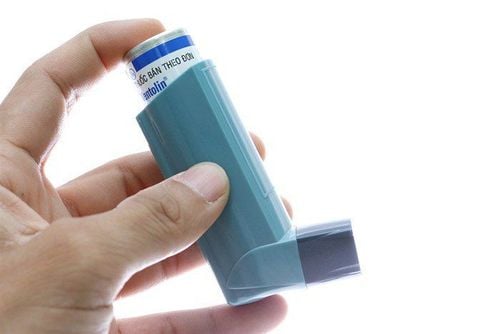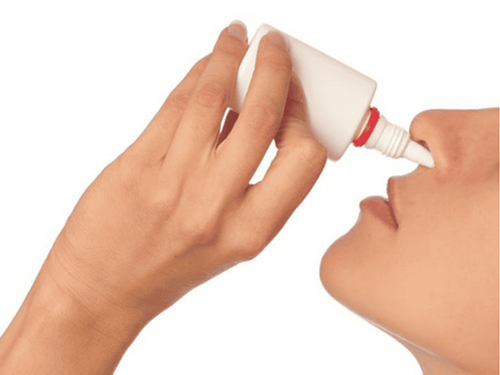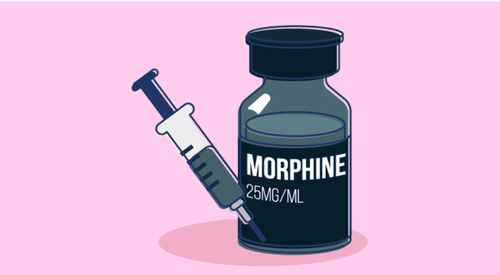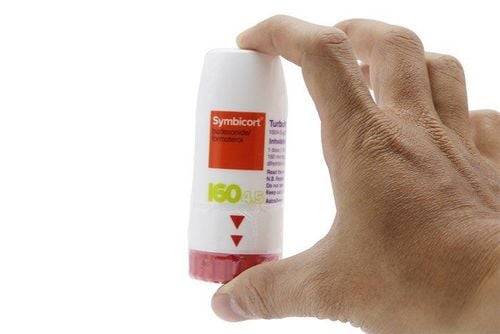This is an automatically translated article.
The article was written by Pharmacist Nguyen Thi Bich Phuong - Clinical Pharmacist, Faculty of Pharmacy - Vinmec Ha Long International General HospitalThe treatment of allergic rhinitis involves reducing exposure to allergens and other factors associated with drug therapy. This combination treatment is effective in most patients. Avoid factors that trigger allergic rhinitis: For example: Avoid contact with cat and dog hair, smoky environments, pollution.
1. Treatment of allergic rhinitis
Drugs for allergic rhinitis :
1.1 Nasal spray containing glucocorticoids Example: Fluticasone (Brand: Avamys 27.5mcg), Mometasone (Brand: Nasonex 50mcg):
Mechanism of action of topical glucocorticoids is a combination has anti-inflammatory, antipruritic and vasoconstrictor effects.
This is the first choice treatment of allergic rhinitis medications. These drugs have few side effects and significantly relieve symptoms in most patients. Studies have shown that nasal spray glucocorticoids are more effective than oral antihistamines for symptom relief.
If you have severe symptoms, you may need to use a nasal decongestant a few days before you start using the nasal glucocorticoid so that the nasal spray can reach and have a wide range of effects in the nose.
Some people notice relief from symptoms within the first day of nasal spray with a glucocorticoid, although it may take days to weeks to see full effects. Therefore, the drug is most effective when used regularly.
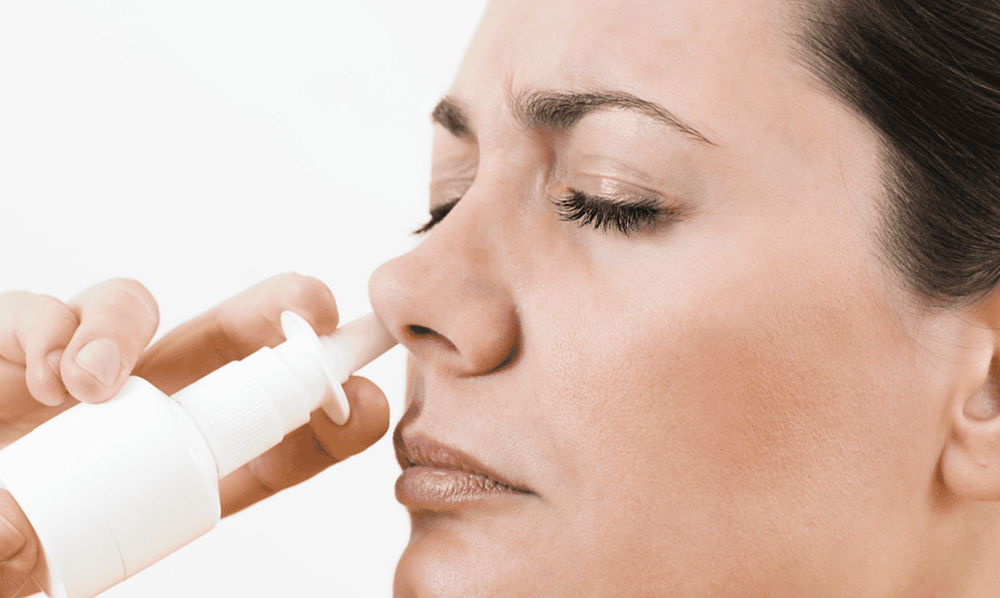
Thuốc xịt mũi chứa glucocorticoid
Nasal sprays work best when:
They are used correctly. The medicine stays in the nose instead of running down the back of the throat. How to use nasal spray:
Should wash the nose with physiological saline to remove mucus and dirt before using the nasal spray. Shake the spray bottle well before each use. Before first use, prime the pump by spraying about 10 times until a uniform mist is seen. If the sprayer has not been used for 14 days or longer, re-prime the pump with 2 sprays until a uniform mist is obtained. When fungal infections are localized to the nose and oropharynx, stop taking the drug. When using drugs of different brands, do not arbitrarily convert the equivalent dose/spray but consult your doctor or pharmacist because different brand-name drugs may contain drugs prepared in different salt forms. Keep your head straight or chin slightly protruding forward. Point the spray tip away from the nasal septum (the cartilage that divides the sides of the nose). After spraying, inhale gently so that the medicine enters the upper part of the nose. Avoid inhaling too hard as the medicine may run down the throat.
Side effects:
When using glucocorticoid nasal spray may experience a few mild side effects such as: unpleasant taste, dry nasal mucosa. Some patients may experience irritation, scaling, and bleeding of the nasal septum, especially during winter. These problems can be minimized by reducing the dose of the nasal spray, applying a moisturizing nasal gel or spray to the nose before using a glucocorticoid spray, or switching to a water-based (rather than alcohol-based) spray. . Studies show that inhaled glucocorticoids are generally safe to use for many years. However, you should have regular nasal exams to check for rare side effects, such as nasal infections. Contraindications:
Hypersensitivity to the components of the drug. Severe nose infection. Nosebleeds, recent surgery or trauma to the nose. Use in children: In children, long-term use of glucocorticoid nasal sprays may cause growth retardation. If your child needs a glucocorticoid spray for more than two months in a year, ask your doctor or pharmacist for advice.

Sử dụng thuốc xịt mũi ở trẻ nhỏ
1.2 Antihistamines Antihistamines relieve itching, sneezing and runny nose caused by allergic rhinitis, by competing with histamine (which is the substance that causes allergy symptoms in the body) but they do not relieve nasal congestion. . Used in combination with a glucocorticoid nasal spray or a decongestant may provide better symptom relief than either of these medications alone.
1st generation antihistamines - with sedative effects: Antihistamines are available without a prescription, including chlorpheniramine (Brand: Chlorpheniramine 4mg). However, these drugs often cause sedation and should not be used before driving, operating machinery, or in children. Because of the side effects associated with first-generation antihistamines, newer, non-sedating antihistamines are generally preferred. New generation antihistamines: Commonly used include loratadine (Brand: Clarityne 10mg), desloratadine (Brand: Aerius 5mg, Aerius 0.5mg/ml, Rinofil 2.5mg/5ml), cetirizine (Brand: Cetirizine stada) 10mg). Antihistamine nasal spray: Relieves symptoms of postnasal drip, nasal congestion, sneezing. A possible side effect of taking this form of medicine is an unpleasant taste in the mouth. This side effect can be minimized by keeping the head straight while spraying so that the medicine does not go down the throat. Eye Drops: If you have itchy or irritated eyes with other allergy symptoms, you may need eye drops or an anti-allergy medication. Glucocorticoid and antihistamine combination nasal spray: This combination nasal spray may improve symptoms of allergic rhinitis better than either medication alone. The most common side effects of these two-ingredient nasal sprays are unpleasant taste, nosebleeds, and headaches. The drug is only approved for children over 12 years of age. Decongestants: Decongestants containing pseudoephedrine, phenylephrine are available in combination with oral antihistamines (eg, Clomistal, New Amerhino). Decongestants can cause high blood pressure and are not suitable for people with high blood pressure or certain cardiovascular conditions.
Some drugs are prepared in the form of drops, nasal spray, for example: Xylometazolin (Brand name: Otrivin with different concentrations). However, this drug is not recommended for routine use for the treatment of allergic rhinitis, only in combination to increase the therapeutic effect of glucocorticoid nasal sprays. Decongestant nasal sprays should not be used for long periods of time (>7 days), because they can cause "drug rhinitis", which causes nasal congestion if the medication is not continued. This condition can be difficult to treat and make symptoms worse.
Contraindications : Hypersensitivity to the components of the drug. Dry nasal mucosa (dry rhinitis), acute angle-closure glaucoma.
Cromolyn: Is a medicine that blocks the production of allergic reaction substances such as histamine and SRS-A to reduce symptoms of itching, sneezing, redness. Medicines need to be taken several times a day to effectively prevent the symptoms of allergic rhinitis. Medications may not be as effective as other medications but are a temporary, prophylactic option before exposure to high-risk environments containing allergens (eg, cat and dog hair). 1.3 Nasal irrigation Nasal irrigation with physiological saline is particularly useful for treating postnasal drip, sneezing, dry nose, and nasal congestion caused by flushing allergens and irritants from the nose. Salt water also clears the nasal mucosa. You can wash your nose before using the spray to get a good effect.
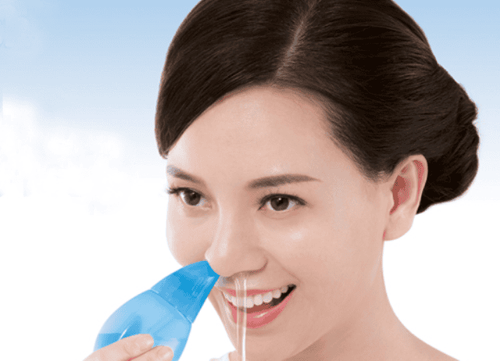
Rửa mũi
2. Other Treatments
Allergic Immunotherapy: Changes the body's immune system to allergens.
Other drugs recommended for patients with allergic rhinitis:
+ Ipratropium: Helps treat severe runny nose. Not recommended for patients with glaucoma or prostatic hypertrophy
+ Leukotriene receptor blocker: A chemical mediator called leukotrienes may contribute to allergic rhinitis symptoms in some people. Leukotriene receptor blockers can be very helpful in people with both asthma and allergic rhinitis. The drugs commonly used are montelukast (brand name: Singulair in strengths). However, intranasal glucocorticoids are more effective than leukotriene receptor blockers for the treatment of allergic rhinitis. Therefore, leukotriene receptor blockers are usually reserved for asthmatics or patients who cannot use nasal sprays (eg, nosebleeds).
3. Special subjects: Pregnant women
Women with a history of allergic rhinitis may see worsening, improvement, or no change in symptoms during pregnancy.
Some women experience nasal congestion in late pregnancy, even if they have no history of allergic rhinitis. This is called "rhinitis of pregnancy" and is related to hormone levels in the body, not causing allergies. Rhinitis of pregnancy does not respond to medication and resolves after delivery.
The discussion below applies only to allergic rhinitis .
+ As a general rule, most medications should be avoided or used at the lowest dose to control symptoms during pregnancy. Some medications used to treat allergic rhinitis are considered safe during pregnancy, so talk to your doctor or pharmacist when you are pregnant to get a prescription for the right allergic rhinitis medicine.
+ If you are pregnant and have mild rhinitis, you can control your symptoms by rinsing your nose or nasal spray with saline.
+ If symptoms are uncomfortable, need to take medicine, you can refer to the following information:

Mẹ bầu nên đến gặp bác sĩ để được tư vấn
Nasal sprays: Some nasal sprays are a reasonable choice for pregnant women because when sprayed directly into the nose, only a lower dose than the systemic route is required to be effective, and the drug has little local effect. cause systemic unwanted effects
Cromolyn nasal spray is safe to use during pregnancy. Only a very small amount of the drug is absorbed into the bloodstream, and no serious side effects have been noted. Nasal spray glucocorticoids are considered safe to use during pregnancy, although more information is available about some drugs than others. The recommendation to avoid triamcinolone is based on a study that showed an increased risk of birth defects if used during the first trimester. Overall, research supports the use of intranasal glucocorticoids during pregnancy. Can choose Nasonex, Avamys in the first 3 months of pregnancy. ● Antihistamines - Cetirizine (Brand: Cetirizine stada 10mg), loratadine (Brand: Clarityne 10mg) and chlorpheniramine (Brand: Chlorpheniramine 4mg) are considered safe to use during pregnancy.
● Nasal decongestants: Pseudoephedrine should be avoided during the first trimester of pregnancy because its safety has not been confirmed. After the first trimester, it should be used only as needed and only as directed. You should not use it if you have high blood pressure or preeclampsia. Phenylephrine should be completely avoided during pregnancy.
Otolaryngology - Vinmec International General Hospital specializes in examining and treating common ENT diseases such as: rhinitis, allergic rhinitis, chronic rhinitis, tonsillitis, sore throat, tinnitus ear, non-allergic rhinitis, throat cancer; tumors of the head, face and neck, congenital malformations of the ear, nose and throat area by common surgical methods.
Please dial HOTLINE for more information or register for an appointment HERE. Download MyVinmec app to make appointments faster and to manage your bookings easily.
Articles refer to the source: Uptodate, Vinmec Manual of Medicine 2019





